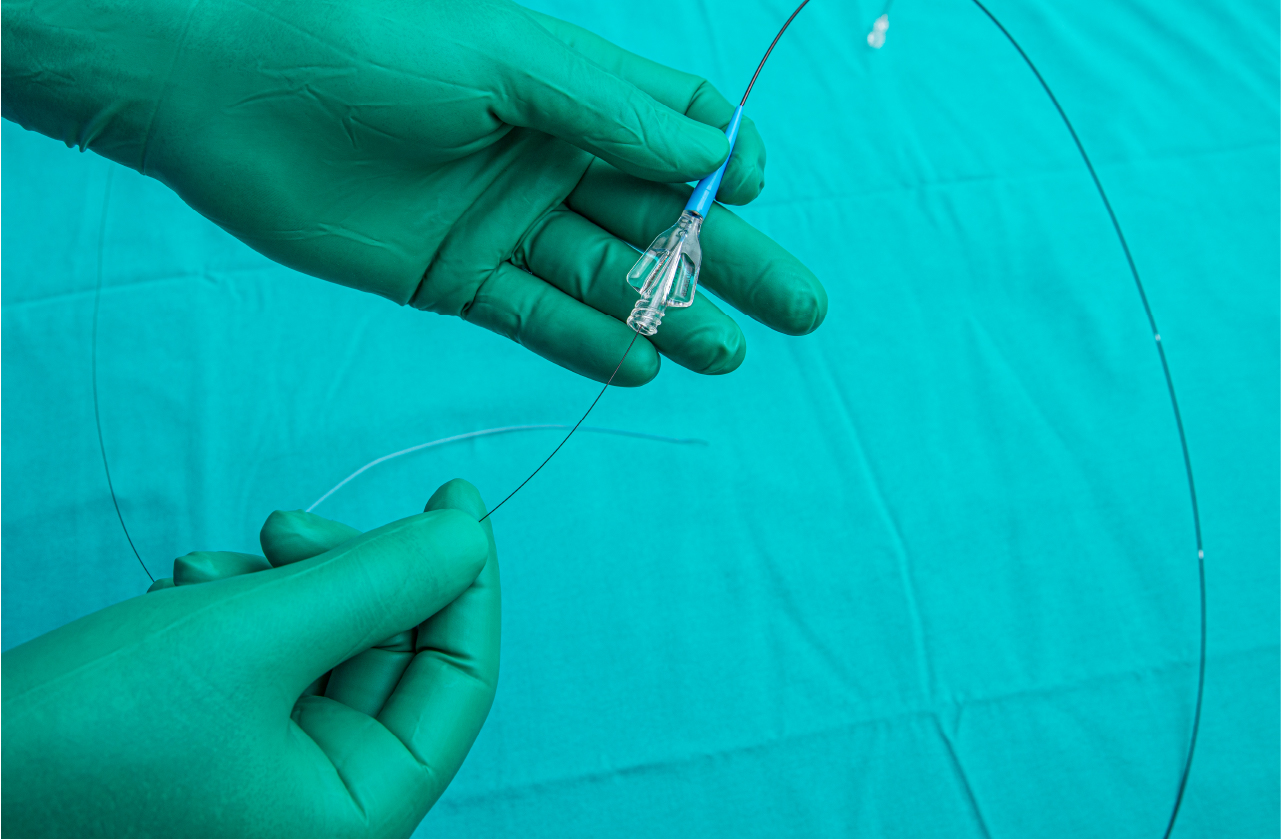Le 15 décembre 2021 - Pendant des années, les professionnels de la santé ont fait appel à des procédures conventionnelles pour réaliser des interventions cardiovasculaires. À l’instar d’une sonde spirale qui débouche un tuyau à la maison, l’utilisation de fils-guides et de cathéters dirigés par imagerie 2D est depuis longtemps la norme pour les cliniciens cardiovasculaires. Bien que de telles pratiques soient efficaces, les progrès rapides de la technologie ont ouvert la voie à des innovations qui pourraient réduire considérablement la durée des procédures ainsi que le taux d’échec global.
In Canada’s rapidly growing image-guided therapy (IGT) field, Magellan Biomedical is one organization leading the development of technology focused on enhancing current cardiovascular diagnostic and treatment practices. Magellan Biomedical’s technology not only allows clinicians to achieve localized position control of any off-the-shelf guidewire, but also enhances the navigation of such devices by leveraging the power of 3D visualization. While this technology has the potential to be used in interventions across a plethora of diseases, the immediate need addressed by Magellan Biomedical is in therapy of peripheral arterial disease. With roughly 50-80% of typical procedure time dedicated to manipulating the guidewire, such technology has the potential to revolutionize the future of cardiovascular interventions. Adding to the power of this technology, is its seamless fit into current practices. Magellan Biomedical’s technology does not alter conventional procedures but enhances existing practices. While compatible with any off-the-shelf guidewire or catheter, this technology is not only easy to integrate, but also cost-effective.
Ali Tavallaei, président et directeur de Magellan Biomedical, a évoqué lors d’un entretien des intentions altruistes quand on lui a demandé comment sa carrière en technologie biomédicale avait commencé. Enfant, Tavallaei vénérait le travail des chirurgiens et des cliniciens qui soulageaient immédiatement la douleur des patients, mais c’est plutôt l’ingénierie qui l’intéressait. Afin de rapprocher ces deux passions, Tavallaei a fait un doctorat en sciences du génie biomédical à l’Université Western. Pendant son doctorat, il a cofondé Vital Biomedical Technologies qui a fait l’objet de nombreux éloges et subventions pour ses travaux sur les actionneurs compatibles avec l’IRM. En 2016, Tavallaei s’est joint au Centre des sciences de la santé Sunnybrook à titre de stagiaire postdoctoral pour poursuivre ses travaux sur l’avancement de la technologie médicale. En 2019, avec d’autres opportunités qui se profilent à l’horizon, Tavallaei a accepté un poste de professeur à l’Université Ryerson où il continue à enseigner et à faire avancer la mission de Magellan Biomedical.
Quand on lui a demandé quels avaient été les principaux enseignements tirés de son expérience sur le terrain, Tavallaei a souligné l’importance de mettre en place une équipe solide et diversifiée, forte de compétences complémentaires. L’équipe de Magellan Biomedical se compose d’ingénieurs, d’inventeurs, de cliniciens et de scientifiques qui partagent une même mission. Grâce à une bonne équipe, à un produit solide et à une industrie en pleine croissance, Magellan Biomedical occupe une position privilégiée sur le marché, mais doit relever un défi de taille. Comme l’industrie canadienne de la thérapie guidée par imagerie est relativement peu connue, Tavallaei a souligné qu’il est difficile de trouver des investisseurs principaux qui ont déjà investi dans le domaine. Par conséquent, une prochaine étape essentielle sera de renforcer la présence nationale du Canada dans le secteur pour attirer de nouveaux investisseurs et obtenir un financement continu.
While the image-guided therapy space is rich with innovative start-ups, like Magellan Biomedical, it has yet to see the formation of an integrated community that allows for cross-sector collaboration, seamless knowledge transfer, and the amplification of the field’s national and international profile. This presents tremendous opportunity in the space given Canada’s strong foundation in image-guided therapy technology. Tavallaei spoke of Canada as home to some of the “best centers or institutes globally that are active in the medical imaging space”. With pioneering technologies developed here at home, the key opportunity that has yet to be leveraged is how to properly amplify and commercialize these innovations. With such untapped potential, the partnership between Magellan Biomedical and the INOVAIT network is one step forward in bridging the gap between existing innovators in the field and attracting national and international attention from potential investors.




